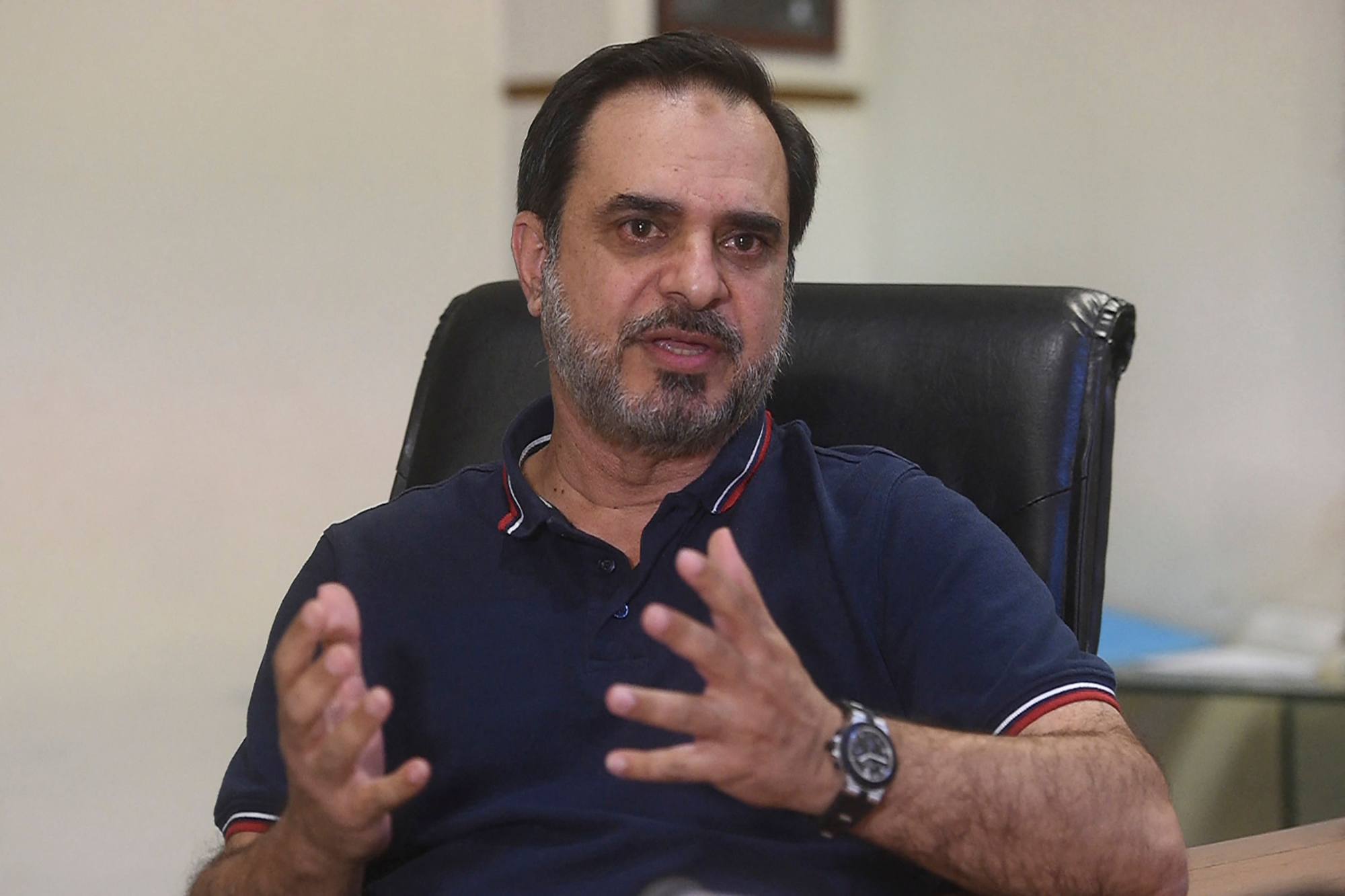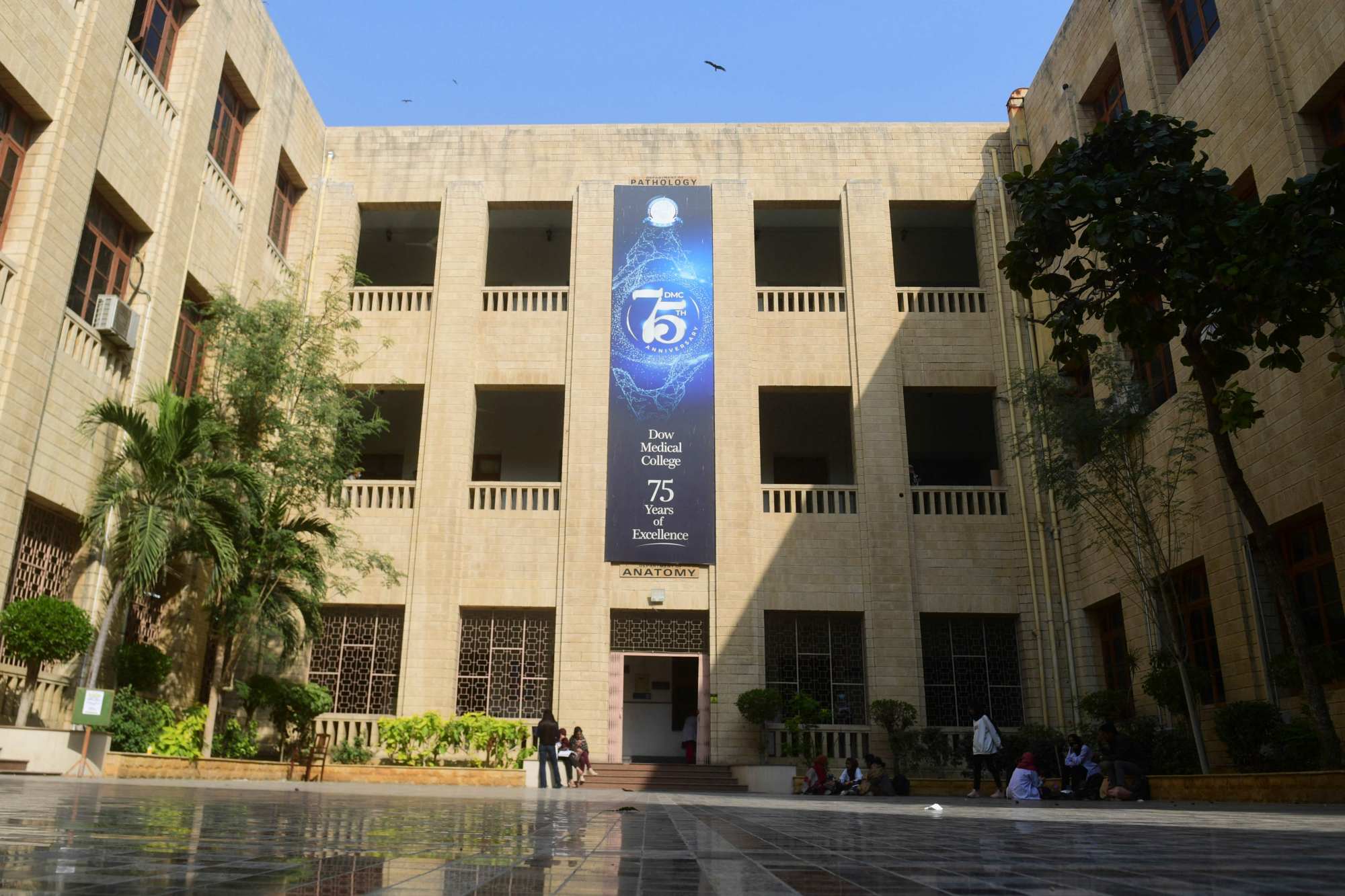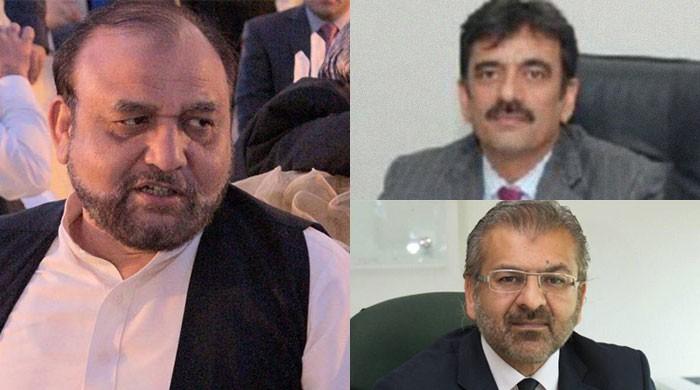Russian-led China-Pakistan Alliance, Facing the US-led Terrorism
By
Sajjad Shaukat
After the end of the Cold War, the most important trend in the world was the development of regional blocs for economic progress of the nations through interaction in various fields.
In the drastic aftermath of 9/11, even Western think-tanks had recognised inter-relationship among global security, economics, politics and terrorism.
Undoubtedly, Russian-led coalition of Iran, Iraq, the Syrian army the National Defense Forces (NDF) and Lebanon-based Hezbollah in support of Syrian President Bashar al-Assad has achieved successes in Syria and Iraq by retaking several regions from the occupation of the CIA-Mossad led rebel groups, mercenaries and the militant outfits such as ISIS (Also known as Daesh, ISIL), and its linked militant groups like Al-Qaeda’s Al-Nusra Front. China also supports the Russian-led coalition in case of Syrian civil war.
While giving much importance to the Syria’s war and terror-related attacks in Europe, the US and the Middle East, Western leaders, their audience and media give slight importance to South Asia where Russian-led China-Pakistan alliance is also facing the US-led terrorism.
In this regard, the armed forces of Pakistan have successfully broken the backbone of the foreign-backed terrorists by the successful military operations Zarb-e-Azb and Radd-ul-Fasaad which have also been extended to other parts of the country, including the Balochistan province. And Pakistan’s intelligence agency, ISI has broken the network of these terrorist groups by capturing several militants, while thwarting a number of terror attempts.
Besides, since the government of the Balochistan province announced general pardon and protection to the Baloch militants as part of the reconciliation process, many insurgents and their leaders have surrendered their arms and decided to work for the development of Pakistan and the province. Peace has been restored especially in Balochistan.
But, a new wave of terrorism in Pakistan killed several innocent people, while various terrorist outfits such as the ISIS and its affiliated faction of the Tehreek-e-Taliban Pakistan (TTP), the Tehreek-e-Taliban Pakistan Jamaat-ur-Ahrar (TTP-JA also known as JuA) claimed responsibility for these brutal acts. TTP based in Afghanistan has its connections with ISIL and other terrorist organisations and affiliated terror groups, including Baloch separatist elements, and all these groups are promoting the covert agenda of the US-led entities. As part of the double game, American CIA, Indian RAW, Israeli Mossad and Afghan intelligence agency, National Directorate of Security (NDS) which are in collaboration, are using these terror outfits in desterilizing Pakistan and particularly Balochistan, including Afghanistan through various acts of terrorism in order to fulfill the secret strategic aims of their countries against Pakistan, China, Russia and Iran. The attack on Tehran’s parliament complex by the ISIL on June 8, 2017, was also part of the same scheme.

Notably, on June 23, this year, a suicide car bomber killed 14 people, including seven policemen in Pakistan’s city of Quetta, the provincial capital of Balochistan, and with two blasts later claiming at least 67 lives in the northwestern town of Parachinar. On the same day, a separate gun attack on police in Karachi killed four officers.
Both the ISIS-linked militant group JuA, and a splinter a splinter group of the TTP claimed responsibility for the explosions in Quetta and Parachinar.
Taking note of Afghanistan’s cross-border terrorism, Pakistan’s army had decided to build a fence along the porous border and to control the border crossings. In this context, the strategic project of the 1,100-kilometre-long trench with the cost of Rs14 billion which was initiated along Pak-Afghan border in Balochistan by Frontier Corps in 2013 has been completed. In the next phase, the project will be extended to the entire long border with Afghanistan which had opposed this plan.
Meanwhile, during his visit to the Pak-Afghan border regions in Mohmand and Orakzai agencies, Pakistan’s Chief of Army Staff Gen. Qamar Javed Bajwa who was given a detailed briefing on security arrangements, cross-border terrorist threat and recent terrorist attacks from across on the Pakistani posts (From Afghanistan) stated on March 25, 2017 that fencing on the Pak-Afghan border has commenced and the border areas of other tribal areas across the Pak-Afghan border will be given first priority, as they are high-threat zones. He further stated that Pakistan Army would employ all resources required for the defence of the country. In his recent statement, he reiterated his statement. Without naming Washington, as Pakistan depends upon the US-controlled international financial institutes for loans, he pointed out that foreign powers were involved in acts of terrorism in the country—and Parachinar.
However, in the recent past, the capture of secret agents of RAW and NDS by Pakistani intelligence agencies show that these external secret agencies are particularly assisting the TTP which is hiding in Nuristan and Kunar provinces of Afghanistan. Reportedly, Mullah Fazlullah led TTP is behind several terror activities inside Pakistan, as the latter has also become the center of the Great Game due to the ideal location of Balochistan.
Indian role in Pakistan became naked after the arrest of Kulbhushan Yadav on March 3, 2016, in Balochistan. In a video statement, Kulbhushan openly admitted that he was the serving agent of Indian RAW in Balochistan province, and during his stay, he contacted various Baloch separatist leaders and insurgents, including Dr Allah Nazar Baloch to execute the task to damage the China-Pakistan Economic Corridor project (CPEC). Yadav confessed that he spied for India and was “assigned with the task to create unrest in Karachi and Balolchitan…to destabilise Pakistan…he was captured while heading Iran.” He also revealed that he was funding Baloch separatists along with other terrorists.
While addressing a joint press conference with the then Federal Minister for Information Pervaiz Rasheed, the then Director General of Inter-Services Public Relations (ISPR) Lt. Gen. Asim Saleem Bajwa said on March 29, 2016, “Kulbushan Yadav’s arrest is a rare case that does not happen very often.” He disclosed that Yadav was an active officer of the Indian Navy prior to his joining RAW. He also served as a scrap dealer and had a jewellery business in Chahbahar, Iran, after he joined RAW in 2013.
On June 22, 2017, ISPR released the new video of the convicted Indian spy Kulbhushan, which is the second confessional video of him.
Pakistan’s online sources indicate that America is pressurising the Hague-based International Court of Justice (ICJ) to favour New Delhi, which has already granted stay regarding the execution of Kulbhushan Jadhav on the appeal of India.
Nevertheless, with the tactical assistance of CIA, Indian RAW and Israeli Mossad are trying to damage the CPEC through the terrorist outfits.
It is notable that India did not participate in China’s One Belt One Road (OBOR) Summit which took place on May 14, 2017, in Beijing. This step was taken to show displeasure towards the Pak-China project of the CPEC which has been strongly opposed by New Delhi. The OBOR summit was attended by the heads of 29 state and governments, which included Pakistan’s Prime Minister Nawaz Sharif, Sri Lankan PM Ranil Wickremasinghe, delegations from South Asian countries, leaders and officials from Russia, US, Japan, UK, Germany and France. The OBOR plan will create a network of trade routes, rail lines, ports and highways, linking countries on four continents. China is calling it the “plan of the century.”
China has elevated the plan to a national strategy. It is also President Xi Jinping’s signature foreign policy. In his opening speech, Xi has described the Silk Road which connected Europe and Asia some two millennia ago.
Nearly 70 countries have signed agreements with Beijing to participate in the initiative of the OBOR or the Belt Road Initiative (BRI). Many of China’s Asian neighbours are sorely in need of infrastructure investment and development aid.
Russia has strongly favoured the OBOR and CPEC projects, leading the Russia-China strategic partnership which comprises everything from energy to infrastructure development, including future Trans-Siberian high-speed rail. Pakistan is the key member of this partnership, while Turkey also joined the Russian-led China-Pakistan alliance.
It is mentionable that on June 9, this year, Pakistan’s Prime Minister Nawaz Sharif held a meeting with Russian President Vladimir Putin on the sidelines of Shanghai Cooperation Organisation (SCO) summit in Astana, Kazakhstan.
President Putin said that Pakistan is an important partner for Russia in South Asia and congratulated Prime Minister Sharif on Pakistan’s full membership to the SCO. Putin elaborated, “Russian-Pakistani relations have been constructive and mutually beneficial…our relations are developing in many areas, and our trade has increased.”
In a major development, Russia has offered its support for Pakistan’s entry into a free trade agreement with Eurasian Economic Union (EEU), of which Russia is a leading member.
Prime Minister Sharif who thanked the Russian Federation for supporting Pakistan’s full membership in the SCO, said, “The SCO gives us a powerful platform for partnerships to promote peace, build trust and spur economic development for shared prosperity…it helps us all combat terrorism…expansion of the SCO has taken place at an opportune time, as China’s ‘One Belt, One Road’ initiative has transformed the global economic landscape…in Pakistan, we are diligently implementing the China-Pakistan Economic Corridor, which is a flag of the OBOR.”
It is noteworthy that in response to the Pak-China project of CPEC, America broadly favoured India and Afghanistan, signing a deal with Iran for a transport corridor, opening up a new route to Afghanistan via the Iranian port of Chabahar. In this context, during his visit to Tehran, on May 23, 2016, the Indian Prime Minister Narendra Modi signed a deal to develop Iran’s Chabahar port. India will spend $500 million on the project. Chabahar—located about 1,800 kilometres south of Tehran—is more than just a port with an adjoining free trade zone. But, CPEC is much bigger and viable project then Chahbahar.
In this respect, on June 13, 2016, a Chinese newspaper, Global Times has blamed India for damaging the prospects of Gwadar by investing in Chahbahar to isolate Pakistan; however, it will not succeed in its designs. The paper explained, “Pakistan’s Sindh Province saw a bomb attack against Chinese engineers…Meanwhile, the Pakistani government claimed that anti-CPEC activities by foreign forces have been busted in Baluch Province. At the Beijing Forum held in Islamabad in late May, countries including the US and Japan have shown concerns over CPEC construction and even bluntly criticised the China-Pakistan friendship. CPEC is a significant part of the Belt and Road initiative, which is not only a domestic strategy of China to open up its central and western regions, but also Pakistan’s domestic development plan as well as regional integration.”
Nonetheless, the establishment of CPEC between deep Gwadar seaport of Balochistan and the historic Silk Road city in western regions-Xinjiang of China will connect Pakistan’s regions of Gilgit-Baltistan through Khunjerab Pass. Beijing would also build an international airport at Gwadar, while the roads infrastructure in Gwadar would link the communication network of rest of the country to facilitate transportation of goods.
When Gwadar seaport becomes fully operational, it would connect the landlocked Central Asian states with rest of the world. Being the commercial hub, the port is likely to increase the volume of trade, bringing multiple economic and financial benefits to Pakistan. It will enable high-volume cargo vessels to move in the major oceans, giving China’s short and easy access to the Persian Gulf and the Indian Ocean.
The India-Iran-Afghanistan agreement to develop a trade route from Chabahar to Central Asia has been portrayed by Indian commentators as having changed the historical Great Game for control of the connection between South and Central Asia through Afghanistan. But, the project will remain a dream, as with the collapse of the intra-Afghan negotiations, Afghanistan is witnessing a further escalation of conflict and chaos and continued wave of bomb blasts by the Taliban who are fighting against the occupying forces.
It is also due to unrest in Afghanistan that the US-backed Turkmenistan-Afghanistan-Pakistan-India (TAPI) gas pipeline did not start. In 2009, Pakistan and Tehran had signed the Iran-Pakistan-India (IPI) gas pipeline project without New Delhi, as the latter was reluctant in this context owing to its pro-US tilt. Since then, it has been named as the Iran-Pakistan (IP) gas pipeline project. The US had previously threatened Pakistan with sanctions if it went ahead with the project.
America and Israel are seeing the Chabahar project with suspicion. To bolster its strategic contest with China and Russia, the US is moving towards a military alliance with India. America which is backing Indian hegemony in Asia, especially to counterbalance China is supplying New Delhi latest weapons, arms and aircraft. During ex-President Barack Obama’s second visit to India, the Washington and New Delhi announced a breakthrough on a pact which would allow American companies to supply India with civilian nuclear technology, as agreed upon in 2008. During Indian Prime Minister Modi’s first visit to America, President Obama had strongly assured him to favour India’s membership in the coming meeting of the Nuclear Supplier Group. Earlier, Washington also pressurised the International Atomic Agency (IAEA) to sign an accord of specific safeguards with India. America had already contacted the NSG to grant a waiver to India for starting civil nuclear trade on a larger scale.
And, American President Donald Trump who is well-known for his anti-Muslim rhetoric is following the pro-Israeli and pro-Indian policies at the cost of Pakistan and other Islamic countries. Trump who is himself fundamentalist is silence over Hindu extremism led by Modi whose government has been implementing anti-Muslim, anti-Christian and anti-Pakistan agenda. Various developments like unprecedented rise of Hindu extremism, persecution of minorities, assaults on Christians and Muslims, including their places of worship, forced conversions of other religious minorities into Hindus, inclusion of Hindu religious books in curriculum, creation of war-like situation with Pakistan; continued violations at the Line of Control (LoC) across Kashmir, perennial state terrorism by the Indian security forces on the Kashmiri people in the Indian-Held Kashmir like Israeli atrocities on the Palestinians etc. might be cited as example.
During his trip to the USA, Prime Minister Modi’s first meeting with President Trump held on June 27, 2017. Both the leaders pledged to work together to boost their respective economies and other fields. Hours before Modi’s arrival, the State Department imposed sanctions on Syed Salahuddin, the leader of Hizbul Mujahideen—the main group that fights against Indian-controlled Kashmir. India’s foreign ministry hailed the move.
While ignoring ground realities that the US-led Mossad and RAW are sponsoring terrorism in Asia and Western countries, in the joint statement, Trump hailed pledges of closer military cooperation between India and the United States, especially in the fight against the ISIL. The leaders called on Pakistan to ensure that its territory is not used to launch terrorist attacks on other countries.
President Trump and Prime Minister Modi pledged to deepen defence and security cooperation, building on the US’s recognition of India as a major defence partner. The president also thanked India for seeking a $2 billion arms deal with the United States for 22 naval surveillance drones.
Trump said, “The relationship between the United States and India is very, very strong and very, very powerful.”
By setting aside the fact that RAW and Mossad are assisting the ISIS to further create lawlessness in Afghanistan so as to shift the blame game towards Pakistan and Russia, and to prolong the stay of the US/NATO forces there, Trump welcomed India’s contributions to promote Afghanistan’s democracy, stability, prosperity and security.
Trump has so far focused on outreach to China, India’s strategic rival, as he supposedly looks to Beijing to rein in nuclear-armed North Korea. However, the joint statement indicates that Washington and New Delhi share concerns about North Korea’s missile programme and China’s rise as a military power.
Unlike the past this time, the joint statement uses the term “Indo-Pacific” for the first time, which is a more contemporary term than “Asia-Pacific”. It uses terms like “democratic stalwarts” and “responsible stewards” which are aimed at China, takes a common position against the China-Pakistan Economic Corridor and expresses reservations about the Belt and Road Initiative.
Trump remained silence over the solution of Kashmir dispute, while outside the White House, Kashmiri protesters waved flags and chanted slogans, calling on the US to pressure Modi to let the Kashmiris determine their own fate and stop the use of brutal force against civilians in Indian-Occupied Kashmir.
As regards Afghanistan, there are several groups of the Taliban and a majority of them are fighting for the liberation of their country. But, so as to pacify their people and justify the unending war, Afghanistan, India and the US has accused Pakistan and Russia of assisting the Taliban.
In order to divert attention from NATO’s defeatism in Afghanistan, at a news conference in Kabul, on April 24, 2017, Defense Secretary James Mattis and Gen. John Nicholson, the American commander in Afghanistan supposedly stated that Russia was providing weapons to the Taliban. But, Moscow denied these false allegations.
On May 31, this year, a massive truck bombing of the Afghan capital’s diplomatic section killed more than 150 people and injured hundreds of others, including foreigners.
Taliban denied responsibility for the terror attack. But, Afghanistan’s intelligence service and Afghan President Ashraf Ghani accused the Haqqani network by saying that a Taliban-affiliated group in Pakistan, carried out the attack.
Notably, in testimony to the Senate Armed Services Committee, the US Defense Secretary Jim Mattis acknowledged that “We are not winning in Afghanistan,” and he admitted that the Taliban were surging at the moment.
It is worth mentioning that the US and India do not want to see peace and prosperity in the region. Sadly, Pakistan’s dominant role in Afghanistan’s peace process under the Quadrilateral Coordination Group (QCG) has, deliberately, been sabotaged by the killing of the Taliban leader Mullah Akhtar Mansur in a CIA-operated drone attack in Balochistan. After the incident, Afghan Taliban leaders refused to participate in the US-sponsored talks with the Afghan government. While, in the recent past, with the help of Pakistan, a series of meetings were held in Islamabad and Kabul among the representatives of Pakistan, Afghanistan, China and the US to develop an understanding for the earliest possible resumption of stalled talks between the Afghan government and the Taliban with view to ending nearly 16 years of bloodshed in Afghanistan.
During the sixth Heart of Asia Conference which was held in the Indian city of Amritsar on December 3 and 4, 2016 proved fruitless in achieving its goals due to the secret diplomacy of the US, India and Afghanistan owing to the blame game, especially of New Delhi and Kabul against Islamabad.
In his opening remarks, following American secret diplomacy in Asia, in his frenzy and ferocious speech, Indian Prime Minister Narendra Modi lashed out at Pakistan on terrorism as the central subject of the moot.
Speaking in the Indian tone, Afghan President Ashraf Ghani accused Pakistan of providing sanctuary to terrorists and cross-border terrorism in Afghanistan.
Pakistan’s Adviser to the Prime Minister on Foreign Affairs Sartaj Aziz who also participated in the conference slammed baseless accusations of Modi and Ghani on Islamabad and called for evolving a joint and purposeful strategy for lasting peace in Afghanistan and to combat terrorism in the region.
The adviser said that peace talks between the Afghan government and Taliban had not produced positive results, adding that Pakistan was making a serious effort to facilitate peace talks through the QCG. He urged all QCG members to continue their efforts for talks between the Afghan government and Taliban.
Addressing the conference, Russian envoy Zamir Kabulov rejected the Indian and Afghan allegations against Pakistan. He stated that Afghanistan is the pivot of the conference and the agenda of the conference should not be hijacked. He added that being friends and supporters, we should avoid the blame game and work together. He also said that Sartaj Aziz’s speech at the conference was friendly and constructive.
Earlier, due to the double game of the US and failure of the QCG, China, Russia and Pakistan held secretary-level trilateral talks in Moscow on December 27, 2016, and discussed regional stability, including the restoration of peace in Afghanistan. The meeting also discussed anti-terrorism cooperation amid growing influence of the ISIL in the region and a peace process between the Afghan government and the Taliban.
It is worth mentioning that in accordance with the extremist agenda of Israel, Trump administration has imposed sanctions on Iran on February 3, 2017. Earlier, the hardliner President Trump had stated that he would abandon the Iran nuclear deal.
In his address at a regional summit in Riyadh on May 22, 2017, President Donald Trump called for “Muslim unity in the fight against terrorism. Brushing aside the Israeli-led US state terrorism and CIA-backed terror in Afghanistan, Pakistan, Syria, Yemen and other vulnerable Islamic countries, Trump singled out Iran, accusing Tehran of contributing to instability in the region. He supposedly said, “From Lebanon to Iraq to Yemen, Iran funds, arms and trains terrorists, militias and other extremist groups that spread destruction and chaos across the region.” Keeping Israeli hidden agenda in his mind, Trump also stated that all the Muslim nations should boycott Iran.
President Trump also encouraged NATO-like alliance of Saudi Arabia, which includes the Sunni countries against Shia states, especially Iran and Yemen. It was formed on the instructions of Washington. As after the US-led invasion of Afghanistan, Iraq, airstrikes on Libya and promotion of war in Syria have been clearly exposed, therefore, America revived the old phoney global war on terror to secure the illegitimate interests of Tel Aviv, whose major aim was to deceive the Muslims.
US-Israeli secret strategy
It is of particular attention that acting upon the US-Israeli secret strategy, on June 5, this year, six Arab countries, Saudi Arabia, the United Arab Emirates (UAE), Bahrain, Egypt and Libya’s eastern-based government, including the Maldives severed diplomatic ties with Qatar for allegedly supporting terrorism. Trump also raised similar false allegations in connection with Qatar. On June 22, 2017, Riyadh-led Arab countries sent a list of demands to Doha as conditions, including closing down the Turkey military installation to restore relations with the latter. Qatar has dismissed the demands, submitted by four Arab countries as “neither reasonable or actionable”.
The UK, France and the UNO called upon the Gulf states to find a way of deescalating the situation and lifting the current embargo and restrictions which are having an impact on the everyday lives of people in the region.
Turkey rejected a call from Arab states on June 23, 207 to shut down its military base in Qatar, saying the base was a guarantor of security in the Gulf and demands for its closure represented interference in its ties with Doha.
While the Saudi Arabian king who wants to save the kingdom of the country has been creating division and divide between the Muslim countries on the basis of Shia and Sunni. In pursuance of American-Israeli clandestine designs, it seems that Riyadh has decided to promote sectarian violence in the vulnerable Islamic countries. In fact, CIA and Mossad are diverting the attention of the international community from their own state terrorism and terrorism-related attacks in the world.
It is also of particular attention that despite the revival of the fake global war on terror, owing to the faulty policies of President Trump, differences are increasing between America and its Western allies. Besides differences between the Britain and the US about Manchester terror attack—probe of Trump that the US intelligence agencies already knew it, Trump’s criticism of Germany regarding trade, travel ban on the refugees and nationals from six Muslim-majority countries to visit the USA, Trumps decision to abandon the Paris climate accord might be cited as instance.
Slamming Germany’s trade surplus and defence spending, President Trump said on May 30, 2016, “The relationship between Germany and the U.S is very bad.”
Taking note of Trump’s emotional statements and fanatic moves, French new President Emmanuel Macron who was blamed as the pro-Israeli candidate during the campaigning for the general election has changed his stand.
In this context, Jones E. Alexis wrote on the Veterans Today on June 22, 2017, “Macron seems to betray the Neoconservatives. He shows that he has some political backbones, for we all know that it takes courage to stand against the New World Order ideology in Syria and warmongers in the United States…French president Emmanuel Macron has recently ruined their ideological worldview by saying that the West must stand with Russia in Syria in order to eradicate terrorist Cells and organisations in Syria.”
Moreover, various other developments such as Russia-Turkey alliance to fight the ISIS, and US decision to dispatch more troops in Afghanistan where America and its NATO allies have entangled in the prolonged war of history, which has, rapidly, increased the cost of war, bringing about multiple internal crises, affecting the ordinary Americans and Western citizens, particularly those of Europe are equally notable. Especially, the endless war in Afghanistan will create a widening rift between American and its other NATO member-countries. NATO could be shattered like the Warsaw Pact. Even, American Western countries, particularly Europe is likely to make their own alliance, instead of depending on the US.
Furthermore, conduction of missile test by North Korea, failure of Thump’s war-like diplomacy against the latter and waning of Russia and China to America in this connection have depressed the Americans.
In these circumstances, taking cognizance of the unsuccessful US-Indian partnership which is based on extremism, Iran will abandon the American-backed Chabahar project and will prefer to align with Russian-led China-Pakistan alliance.
As a matter of fact, Russian President Putin is making alliances and Trump is breaking America’s alliances in wake of the new Cold War which has been accelerated between Washington and Moscow.
Russian-led China-Pakistan alliance which is facing the US-led terrorism will succeed in future due to the faulty strategy of America which is likely to culminate into America’s downfall or disintegration.
Sajjad Shaukat writes on international affairs and is author of the book: US vs Islamic Militants, Invisible Balance of Power: Dangerous Shift in International Relations
Email: sajjad_logic_pak@hotmail.com
Courtesy Veterans Today
Email: sajjad_logic_pak@hotmail.com
Courtesy Veterans Today














Jeopardize OBOR by Asad Khan Betini
Posted by Azahir in Asad Khan Betini, China, China-Pakistan-Russia Alliance, Commentary, PAK-CHINA FRIENDSHIP on November 29th, 2017
Jeopardize OBOR
Asad Khan Betini
China’s one belt one road (OBOR) is changing the world order since it is leading China to influence the western European market. Chinese liberal policy in terms of trade is being viewed as a windfall while CPEC being part of it is the foundation milestone of the project. China is Pakistan’s time-tested friend and has always backed Pakistan economically and logistically despite Islamabad’s cuddling with Washington. Sino-Pak friendship is a firm knot which can’t be unlocked but yet it seems that conspiracies have amplified to imbalance Sino-Pak relations and may endanger the grant. India has recently put proposals before China to reconsider Bangladesh, China, India, and Myanmar (BCIM) as an alternate corridor. India has also resorted to developing Chabahar and Abbass ports to improve trade with Iran and Afghanistan. India’s participation in developing Iran’s Chabahar port with an investment of $85.21 million is being viewed as dominant role in South Asia. Dehli’s investment in Chabahar port will definitely permit India to access & control the Strait of Hormuz that will even provide Israel an access to the Strait of Hormuz for the reason that India is Israel’s time-test friend.
On the other hand, India has raised concerns over growing militant hideouts in Pakistan, India is also proposing China to unleash Pakistan’s secret support to militants that are threatening the regional security and stability, even BRICS summit was predisposed by India to speak on Islamabad’s role on terrorism that brought China to play part for Indian bogey.
Accordingly, India has made reservations that East Turkistan Islamic Party (ECIP) is becoming threat to Chinese projects in deep state with sanctuaries in Tribal areas of Pakistan, but all these claims are yet unacceptable to China since Indo-US and Israel’s nexus is getting stronger and India has been identified as the largest recipient of U.S economic assistance.US may endanger the track of China’s One Belt One Road (OBOR) once India gains its access and control Chabahar port.
India aspired to play a more dominant role in South Asia and it is openly believed that India intensified its attacks through proxy militants in Pakistani resource-rich province “Balochistan” and yet engaged in destruction activities, target killings, bomb blasts in Balochistan but security apparatus in Baluchistan has failed to counter terrorism.
This is not a portent anymore rather a fact, Kulbhoshan Jadhav has claimed all responsibilities for the operations carried out in Pakistani mineral-rich province yet Indo-US plans are to reinvigorate Free Balochistan Movement through fundraising campaigns abroad which are deeply seen as a threat to the existence of Pakistan. It may knock Pakistan’s nuclear doctrine to save its self from foreign aggression, China strongly backs Pakistan in a bid to protect its OBOR’s objectives.
Indo-Us fulcrum is seen as a threat by China since the US is concerned with Chinese liberal influence in the Western Europe. China is softly influencing the international market, particularly developing countries are now getting loans from Chinese International Investment bank (CIIB) rather than World Bank or IMF.
The world order is slowly spinning and CPEC is becoming game changer project in the region. Pakistan needs to promote its education sector, enhance security apparatus and ensure development, friendship, and peace with the neighboring countries for the long term to make it more successful. Pakistan needs to promote Islamic coalition bloc and must arbitrate between Saudi and Iran for détente, even Chinese foreign direct investments can fulfill the needs of Iran, Afghanistan, and Pakistan, so Pakistan must step forward to integrate Muslim brotherhood.
The Writer is Balochistan Based Freelance Journalist – He can be reached at asdprg@gmail.com
CHINA, China-Pak Brotherhood, CPEC, OBOR, Pakistan
No Comments